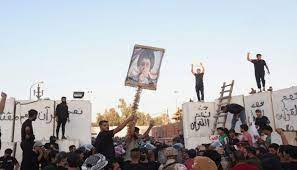China issues a warning as the NATO chief claims no deadline has been set for Ukraine’s membership
According to NATO, Ukraine may enlist “when allies agree and conditions are met” in order to join the organization.
The announcement from NATO comes after Ukrainian President Volodymyr Zelenskyy criticized the organization for failing to establish a deadline for his nation’s membership in the alliance.
NATO Secretary-General Jens Stoltenberg was reported by AP as saying, “We reaffirmed Ukraine will become a member of NATO and agreed to remove the requirement for a membership action plan.”
According to the article, he said that “this will change Ukraine’s membership path from a two-step path to a one-step path.”
Zelenskyy has vehemently disagreed with the choice.
When no deadline is given for either the invitation or Ukraine’s membership, Zelenskyy said that it is unusual and illogical.
While at the same time, he said, “even for welcoming Ukraine, ambiguous language concerning criteria is inserted. It seems that there is no willingness to request Ukraine to join NATO or admit it as a member.
Being a member of NATO would provide Ukraine defense against a powerful neighbor that recently acquired large areas of territory in the east and south after over ten years having annexed the Crimean Peninsula.
According to the analysis, Ukraine would need to reform its security institutions, enhance governance, and combat corruption in order to become a member of NATO. These changes would also make it easier for Ukraine to join the European Union.
According to the source, Stoltenberg said that the most important thing at this point is to make sure that his nation wins the conflict because “unless Ukraine prevails there is no membership to be discussed at all.”
Zelenskyy is scheduled to meet with Joe Biden, the US vice president, and other NATO chiefs on Wednesday.
The ambition of Ukraine to join NATO, which was pledged back in 2008 even though little efforts were done toward that aim, has caused severe divides within the alliance.
The NATO-Ukraine Council, where all parties may attend crisis discussions if their security is endangered, is scheduled to be launched by the leaders and Zelenskyy on Wednesday, according to the article.
However, according to the article, Dmitry Peskov, the Russian government’s spokesman, has said that NATO’s expansion is “one of the reasons that led to the current situation.”
Peskov had remarked, “It seems like the Europeans don’t see their error.
He cautioned against moving Ukraine closer to joining NATO.
“It might be very harmful for European security. Risks are quite high,” Peskov added.
NATO’s “eastward movement into the Asia-Pacific region” has been vehemently opposed, according to a statement from China’s representation to the European Union.
According to Reuters, China has warned that any activities seen as a challenge to Beijing’s rights would be greeted with a robust counteraction.
China rejected the allusions to it in the joint declaration from the NATO summit in Vilnius, Lithuania, according to the statement, which was made public on Tuesday, according to the report.
It also underscored China’s will to tenaciously defend its security, development, and sovereignty interests.
According to the article, it said that “any act that endangers China’s legitimate rights and interests will be met with a resolute response.”
Leaders from the Asia-Pacific area were represented at the two-day summit by those from Japan, South Korea, Australia, and New Zealand.
China stressed that the communique’s repeated claims that NATO is a “nuclear alliance” would only increase tensions in the Asia-Pacific region. China underlined its great worry over these claims.
Japanese Prime Minister Fumio Kishida sought to underline the significance of the military alliance being aware of concerns in East Asia during his second participation in the NATO summit.
In the meanwhile, Yoon Suk Yeol, the president of South Korea, called for more international security cooperation in view of the growing threats from North Korea and the continuing friction with China.







